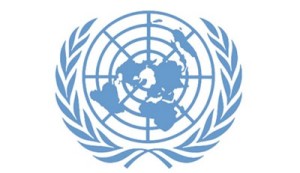 Initiatives to encourage or cultivate leadership among women anywhere in the world, whether in the USA or Pakistan or anywhere in between, tend to focus on things like public speaking, how to prepare for and manage a meeting, how to build a strategy, how to manage conflict, etc. But they often avoid very complicated societal issues that often keep women out of leadership positions.
Initiatives to encourage or cultivate leadership among women anywhere in the world, whether in the USA or Pakistan or anywhere in between, tend to focus on things like public speaking, how to prepare for and manage a meeting, how to build a strategy, how to manage conflict, etc. But they often avoid very complicated societal issues that often keep women out of leadership positions.
Take a friend of mine who lives in a “stan” country: she is committed to doing great work in any task she undertakes. She sometimes needs explicit examples of what is wanted in a task, but once she gets that, she can absolutely do most any task at hand, and it’s meant she’s accumulated responsibilities quickly. She enjoys working with people who are just as committed to doing quality work as she is and who also want to learn. She particularly enjoys working with international staff, because of the wealth of knowledge they have, their confidence and her perception regarding their openness.
But all of that commitment to hard work and attraction to learning and working with foreign workers often sets her up for hostilities with her co-workers, particularly other women. She struggles with the pervasive culture in her country that discourages women from leading or being ambitious. She must be very conscious of gossip, and I think she feels it is a constant balance between doing a good job but not “showing off” or trying to be “better.” because such could be seen as acting immodest or un-Islamic. There is incredible pressure in her country for women to appear gracious and modest at all times, and this can mean not being able to follow the advice she might find online about how to be a leader. She works well on a team and wants everyone to succeed and is very happy to help others, but sometimes holds back from offering ideas because she does not want to be perceived as pushy or arrogant – which she never is, but she’s afraid of the reputation nonetheless. A patriarchal society often has women among its most ardent supporters, and it’s the women she works with that are the most intolerant of a woman who seems to seek opportunities to speak in public and work with foreigners. I think she would lead more if she could see other women in her country doing so, on a day-to-day basis, and how they handle obstacles, challenges, criticisms and accusations of being too ambitious or immodest. That she has managed to be successful in her career to this point is a statement on her persistence and her care at navigating the cultural minefields of her country (and, perhaps, the literal ones as well).
If you doubt my colleague’s reasons for being timid in the workplace, then think about Malala Yousafzai: loved abroad, maligned in Pakistan. Before being shot by terrorists, Malala had been campaigning for girls’ right to education in her home village and was a vocal critic of Islamic extremists. She was praised internationally for writing about Taliban oppression in a BBC blog. After being shot and while in recovery, she has become an international icon of resistance, empowerment of women and right to education. Her continued work has prompted numerous international awards, including the Nobel Peace Prize in 2016. But in her own country, she is derided by many, including women. Many in Pakistan accuse her of being a US agent, of being un-Islamic, of being immodest, and of trying to undermine her country and its culture. She is a frequent target for scorn, ridicule and hatred by everyday Pakistanis – if you doubt it, look at any international news Facebook page features her and read the comments. In Why Pakistan Hates Malala, Michael Kugelman of the Woodrow Wilson International Center for Scholars said,
Malala is no national hero. Revered by many abroad, she is reviled by many at home, including among middle-class Pakistanis one might imagine would be her greatest fans…
As I noted in this blog from 2015:
There’s another reason that keeps so many women in (various) countries off of social media as well: the Tall Poppy Syndrome. People talking about an accomplishment can be seen as bragging, and many feel that tall flower has to be cut down to the same size as all the others. The phrase is particularly popular in Australia, though some people say it isn’t success that offends Australians but, rather, someone that acts superior. But in many places, a woman saying anything on social media, except for praising the deity of her religion, is seen as bragging – and she becomes a target for her “tall” reputation being cut down.
It can be just as bad anywhere, of course: it’s not at all limited by religion or one particular regional culture. I have witnessed in a variety of places, with a variety of women, even in the USA. For instance, see Why Black Women Love to Hate On Black Women. Or this article from a Latino woman talking about how to stay true to herself and her Latino identity at the same time. Also, see this article about racism within the American Indian community, which isn’t about just women, but about a kind of racial competition that can happen among native Americans – the sentiments are similar.
Why do some women turn on other women at work, especially among women that are so disempowered in so many ways in their society? I’ve wondered if it isn’t rooted in that disempowerment, if a woman striking out against another woman, simply because she is a woman, is because it’s the only acceptable way in her society to exert any kind of power. because it’s the only acceptable way to show leadership: by tearing another woman down.
The price a woman pays for exerting leadership is not small: it can mean little punishments at work from co-workers, like being excluded from lunch invitations or outside-of-work social events that build comradery among co-workers. It can mean not being told about meetings and opportunities. Social identity is a person’s sense of who they are based on their group membership(s), and some psychologists believe that insecurity and a big drop in self-esteem arises when the “community” accuses a member of abandoning that group. The result can be gossip so vicious that a woman leaves a job rather than bring suspicion on her “honor,” something that can have dire consequences in her social circles and with her family.
How do we teach women to balance the demands of their culture’s view of women and the very real consequences of violating those unwritten rules with their own desires to lead and grow? Do we encourage them to try to delight in rebelling and to no longer care what their family, their tribe, may think? I think it’s reckless to encourage women to have ambition in developing countries and not also talk about what could be the consequences of such.
I’ve been trying to think of advice that would be helpful to women in environments that are restrictive regarding women’s behavior, particularly in developing countries, and it’s been difficult, because so much of the advice about helping women in the workplace are focused on women in the West, living in corporate cultures where, while there are substantial restrictions, they aren’t nearly Research hasn’t produced much. The best I can come up with is adapting some suggestions from How to Be a Workplace Ally from LeanIn.Org:
- When you hear a woman called “bossy” or “shrill,” request a specific example of what the woman did to merit this label. Then ask, “Would you have the same reaction if a man did the same thing?” In many cases, the answer will be no. When you’re having a negative response to a woman at work, ask yourself the same question and give her the benefit of the doubt.
- Look for opportunities to boost other women’s confidence. When you introduce female coworkers, highlight their credentials and accomplishments—for example, you might say, “Fatima was in charge of our last annual report, and it was more detailed than any report our agency has ever produced.”
- Get together with other women, talk openly about this issue, agree to commit to being each other’s allies and agree to celebrate one another’s successes and to help each other address professional challenges.
And I’ll add three more:
- Respect confidentiality of your women co-workers in particular. No matter how tempting, do not share information you know a woman does not want others to know, and respect anything you have been told in confidence.
- When others gossip, do not respond at all, unless it is to say, “This makes me uncomfortable.”
- Thank co-workers for all of their contributions, however small, to your own work. Thank them in front of an entire group, such as at a staff meeting.
What are your ideas?
Updated April 15, 2021: A comic strip demonstrates the challenges women face online. It’s developed by Kenya ICT Action Network (KICTANet). In a story of three differently aged, differently shaped and differently employed women, we see what violence can look like online, how the seemingly harmless can actually contribute to it, and what we can all do to prevent it and to create a safer space for women online.
Also see:



